Combining L-Theanine and Magnesium for Sleep: A Calm Night, Naturally
🧠 Introduction: Why Sleep Quality Matters More Than Hours
Everyone talks about how much sleep we need—but the quality of your sleep is what really shapes your energy, recovery, and emotional balance.
You can lie in bed for eight hours and still wake up feeling groggy, anxious, or unrefreshed. That’s because your nervous system and brain chemistry determine how deeply you rest, not just the clock.
If your brain can’t relax before bed, your body won’t follow.
That’s where two gentle yet powerful nutrients come in: L-Theanine and Magnesium. 🌿💤
When combined, they create a synergistic effect that calms your mind, relaxes your muscles, and promotes deep, restorative sleep—without sedation or next-day fog.
Let’s explore how this duo works, what science says, and how to use them effectively to build your own natural nighttime formula for better rest.
Looking for supplements for This? Click here.
🌿 Part 1: Understanding L-Theanine — The Calm Within the Chaos

🍵 What Is L-Theanine?
L-Theanine is an amino acid naturally found in green tea (Camellia sinensis). Unlike caffeine, which energizes, L-Theanine calms the brain without making you drowsy.
That’s why monks have used green tea for centuries during meditation—it keeps the mind alert yet serene.
Today, L-Theanine is extracted in supplement form for its ability to enhance focus by day and promote relaxation by night.
🧬 How It Works in the Brain
L-Theanine crosses the blood-brain barrier and directly influences neurotransmitters.
Here’s how it balances your mental state:
🧠 Increases GABA, serotonin, and dopamine — neurotransmitters that regulate mood, stress, and sleep.
🌊 Promotes alpha brain waves — these are associated with relaxed alertness (the state between wakefulness and sleep).
⚖️ Balances caffeine’s stimulating effects — reducing jitters and racing thoughts.
When taken before bedtime, it encourages your brain to slow down—helping you transition from mental chatter to deep calm.
😌 The “Relaxed Focus” Effect
During the day, L-Theanine improves focus without overstimulation.
At night, it shifts the nervous system into parasympathetic dominance—your body’s “rest and digest” mode.
That’s what makes it unique:
It doesn’t knock you out—it invites sleep naturally by teaching your brain to release control.
Looking for supplements for This? Click here.
⚡ Part 2: Understanding Magnesium — The Body’s Calming Mineral
🧂 What Is Magnesium?
Magnesium is one of the body’s most vital minerals, involved in over 300 biochemical reactions.
It plays a role in:
Energy production ⚡
Muscle relaxation 💪
Nervous system regulation 🧘
Hormone balance 🔄
And yet, up to 60% of adults are magnesium deficient—especially athletes, people under chronic stress, and those consuming processed diets.
💤 How Magnesium Supports Sleep
Magnesium is often called the “relaxation mineral.”
It helps regulate your sleep cycle in multiple ways:
Activates GABA receptors 🧠
GABA (gamma-aminobutyric acid) is your brain’s main inhibitory neurotransmitter.
It slows down neural activity, easing anxiety and promoting tranquility.
Lowers Cortisol
Cortisol, your stress hormone, peaks in the morning and should taper off at night.
Low magnesium keeps cortisol levels high, making it harder to fall asleep.
Regulates Melatonin Production 🌙
Magnesium influences enzymes that produce and release melatonin—the hormone that signals your body it’s bedtime.
Relaxes Muscles and the Nervous System 🦵
Ever feel muscle twitches or restlessness before bed? That’s often magnesium deficiency.
It helps relax muscle fibers and prevents nighttime cramps or spasms.
🧘 The Stress-Sleep Connection
Magnesium deficiency increases stress, and stress depletes magnesium—a vicious cycle.
That’s why supplementing magnesium can create a biochemical sense of calm, helping your nervous system exhale.
🌙 Part 3: Why L-Theanine and Magnesium Work Better Together
Separately, these two are great. Together, they’re next-level sleep synergy.
Here’s why this combination works so beautifully:
| Mechanism | L-Theanine | Magnesium | Combined Effect |
|---|---|---|---|
| Neurotransmitter regulation | Boosts GABA, serotonin, dopamine | Activates GABA receptors | Deep relaxation without sedation |
| Stress hormone control | Reduces sympathetic activation | Lowers cortisol | Calm mind and relaxed body |
| Sleep cycle regulation | Increases alpha waves | Supports melatonin production | Faster sleep onset |
| Muscle & nerve relaxation | Calms mental tension | Relieves physical tension | Full-body ease |
Together, they bridge the mind-body gap that often prevents sleep—helping your thoughts slow down as your muscles let go.
🧩 Biochemical Synergy Explained
L-Theanine prepares the mind — by reducing anxiety and promoting alpha-wave calmness.
Magnesium prepares the body — by relaxing muscles and supporting melatonin production.
It’s like pressing the brakes gently rather than slamming them—your body glides into sleep rather than collapsing into it.
💤 Clinical Insight
Studies show that:
L-Theanine increases alpha brain waves within 30–45 minutes of ingestion.
Magnesium supplementation improves sleep onset latency (how fast you fall asleep) and sleep efficiency.
When taken together in the evening, users often report deeper, more consistent sleep and fewer awakenings during the night.
🍵 Part 4: How to Use L-Theanine and Magnesium for Sleep
⏰ Timing
For optimal results:
Take both 30–60 minutes before bedtime.
Avoid caffeine or stimulating activities (like bright screens) during that window.
💡 Tip: If you work out or train late, take magnesium right after exercise and L-Theanine later in the evening.
💊 Dosage Guidelines
| Supplement | Typical Range | Notes |
|---|---|---|
| L-Theanine | 100–400 mg | Start with 200 mg for mild anxiety or 400 mg for strong calming effect |
| Magnesium (glycinate or threonate) | 200–400 mg elemental magnesium | Avoid oxide (poor absorption) |
You can take them together or separately, depending on your preference.
🌿 Forms to Look For
L-Theanine: Capsules or powder (pure L-Theanine or green tea extract).
Magnesium:
Glycinate — for relaxation and best sleep support
Threonate — for brain health
Malate — for energy and muscle recovery
Citrate — helps with digestion but can be mildly laxative
Looking for supplements for This? Click here.
☕ Example Evening Routine
8:00 p.m. – Light snack: oatmeal with banana (natural magnesium + tryptophan) 🍌
8:30 p.m. – Take 200 mg L-Theanine and 300 mg magnesium glycinate
8:45 p.m. – Gentle stretching or 5 minutes of deep breathing 🌬️
9:00 p.m. – Dim lights, avoid screens
9:30 p.m. – Read or journal, then drift into calm, steady sleep 😴
🌬️ Part 5: How This Combo Supports Your Nervous System
The magic lies in how both compounds tune your vagus nerve, the main communication highway between your brain and body.
When you combine L-Theanine’s neurochemical calm with magnesium’s neuromuscular relaxation, your vagus nerve signals: “We’re safe—it’s time to rest.”
This helps:
Lower resting heart rate ❤️
Improve heart rate variability (HRV) 💓
Reduce nighttime anxiety 🌙
Enhance emotional stability the next day 🌞
🧘 Breathwork + Supplements = Sleep Powerhouse
Try this pairing for even deeper results:
After taking your supplements:
Inhale slowly through the nose for 4 seconds
Hold for 2 seconds
Exhale gently through the mouth for 6 seconds
Repeat for 2–3 minutes
This engages your parasympathetic system and complements the biochemical effects of both nutrients.
Want to try Breathwork? Click Here.
💖 Part 6: Additional Benefits Beyond Sleep


🌤️ 1️⃣ Reduced Anxiety and Stress
L-Theanine and magnesium both decrease sympathetic overactivity (fight-or-flight response).
This means less racing thoughts, fewer panic sensations, and greater resilience to daily stress.
⚡ 2️⃣ Better Focus and Cognitive Performance
Interestingly, this duo doesn’t just calm you—it can enhance focus during the day too.
By optimizing neurotransmitters and brain energy metabolism, it helps you stay alert yet grounded.
💡 Take lower doses in the morning (e.g., 100 mg L-Theanine + 100 mg magnesium) for mental balance.
🧬 3️⃣ Improved Hormone Balance
Chronic sleep deprivation disrupts hormones like cortisol, insulin, and testosterone.
Improving your sleep quality with L-Theanine and magnesium helps restore hormonal rhythm—supporting metabolism, mood, and recovery.
💪 4️⃣ Muscle Recovery and Pain Reduction
Magnesium supports muscle repair and inflammation control, while better sleep accelerates healing.
If you train hard or suffer from muscle tightness, this combo will enhance recovery overnight.
💆 5️⃣ Emotional Regulation
Poor sleep amplifies emotional reactivity. L-Theanine and magnesium create a state of emotional neutrality, allowing you to respond rather than react.
People who use this combo often describe waking up feeling centered, peaceful, and emotionally steady—not groggy or sedated.
🍯 Part 7: Stack It with Other Gentle Sleep Supports
For even deeper rest, you can stack this combo with:
🌼 Chamomile or Lavender Tea – adds mild sedation through apigenin compounds.
🍒 Tart Cherry Juice – natural melatonin and antioxidants.
🧘 Glycine (2–3g) – cools body temperature for better deep sleep.
🪵 Ashwagandha (300mg) – reduces cortisol synergistically with magnesium.
💡 Avoid adding melatonin unless you have confirmed low levels; too much can disrupt your circadian rhythm.
⚠️ Part 8: Safety and Precautions
Both L-Theanine and magnesium are very safe for most people when taken within recommended doses.
However:
Those with low blood pressure should monitor levels (both can mildly lower it).
Avoid magnesium oxide (poor absorption) or high doses that cause loose stools.
Consult a doctor if pregnant, breastfeeding, or taking anti-anxiety or antidepressant medication.
🧭 Part 9: Signs It’s Working
Within a few nights, you may notice:
Falling asleep faster ⏱️
Fewer awakenings at night 🌙
Waking up refreshed 🌞
Improved mood stability and reduced anxiety
After 2–3 weeks, your sleep architecture—the balance of REM and deep sleep—may noticeably improve.
🌈 Part 10: Real-Life Testimonials
“I used to lie awake replaying the day in my head. Now, 30 minutes after taking L-Theanine and magnesium, I feel my whole body relax.”
— Lara, 34, fitness coach
“It’s not a knockout pill—it’s peace in a capsule. I sleep naturally, wake easily, and feel balanced all day.”
— Daniel, 42, entrepreneur
“This combo gave me the first truly deep sleep I’ve had since my MS diagnosis. My muscles relax, and my mind feels clear.”
— Sophie, 36, chronic illness advocate
🕯️ Part 11: Creating a Sleep Ritual Around It
Supplements work best when combined with consistent habits.
🌙 Your Nightly Routine Template
| Time | Habit | Why It Works |
|---|---|---|
| 8:30 p.m. | Turn off bright lights, stretch lightly | Lowers cortisol |
| 9:00 p.m. | Take L-Theanine + Magnesium | Calms brain and muscles |
| 9:15 p.m. | Breathwork or meditation | Activates parasympathetic system |
| 9:30 p.m. | Read or journal | Reduces mental noise |
| 10:00 p.m. | Sleep in a cool, dark room | Supports melatonin release |
Repeat nightly for 3–4 weeks and observe how your body and mind start syncing into rhythm.
🌙 Conclusion: The Gentle Science of Calm
In a world filled with stimulation—screens, stress, caffeine, and chaos—your nervous system rarely gets the memo that it’s safe to rest.
Combining L-Theanine and magnesium is a simple yet effective way to remind it. 🌿
Together, they don’t just help you fall asleep—they help you let go.
Your body softens, your mind slows, and you awaken renewed—not groggy, but grounded.
This is natural sleep at its finest—a return to balance, one deep breath at a time. 🌌💤
Looking for online therapy ? Click Here.
📚 References
Lyons, M. M. et al. “Effects of L-Theanine on Stress-Related Symptoms and Cognitive Functions.” Nutrients, 2021.
Peuhkuri, K. et al. “Diet and Sleep: Magnesium’s Role in Human Sleep Regulation.” Nutrients, 2012.
Wienecke, E. et al. “Magnesium Supplementation Improves Subjective and Objective Sleep Quality.” Journal of Research in Medical Sciences, 2016.
Kimura, K. et al. “L-Theanine Reduces Psychological and Physiological Stress Responses.” Biological Psychology, 2007.
Abbasi, B. et al. “The Effect of Magnesium Supplementation on Primary Insomnia in the Elderly.” Journal of Research in Medical Sciences, 2012.
Huberman, A. “Tools for Better Sleep.” Huberman Lab Podcast, 2023.
National Institutes of Health (NIH). “Magnesium Fact Sheet for Health Professionals,” 2022.
Eschenauer, G. A. et al. “Pharmacology of L-Theanine.” Alternative Medicine Review, 2010.
American Sleep Association. “Natural Sleep Aids: A Review of L-Theanine and Magnesium,” 2023.
Related Posts
-

Nootropics That Promote Calm and Rest
Explore the world of calming nootropics — natural brain enhancers that promote relaxation, better focus, and deeper rest. Learn how L-Theanine, magnesium, ashwagandha, and other adaptogens help balance your nervous system, reduce stress, and support restorative sleep.
-

Best Natural Supplement Stack for Sleep
Discover the best natural supplement stack for deep, restorative sleep. Learn how nutrients like magnesium, L-theanine, glycine, and calming herbs such as chamomile and ashwagandha work together to relax your body, calm your mind, and improve sleep quality—naturally and safely.
-

How to Sleep Better After Intense Workouts
Struggling to fall asleep after a tough workout? Learn how to optimize your post-training recovery with nutrition, hydration, and science-backed sleep strategies. Discover how to calm your nervous system, balance hormones, and wake up fully recharged for your next session.
-

Ashwagandha and Valerian: A Bedtime Combo for Deep Rest and Emotional Reset
Discover the calming synergy of Ashwagandha and Valerian root, two natural sleep aids that help quiet the mind, ease anxiety, and promote deeper rest. Learn how this herbal duo supports the nervous system, balances stress hormones, and restores emotional peace — without next-day grogginess.
-

How to Create a Resilience-Boosting Diet
Discover how to build emotional and physical strength from the inside out with a resilience-boosting diet 🍎. Learn which foods stabilize your mood, how supplements like magnesium and omega-3s strengthen your stress response, and why pairing nutrition with breathwork and therapy creates lasting calm, focus, and vitality 🌿💪.
-

Best Teas and Herbal Blends for Calmness: Nature’s Way to Restore Inner Peace
Ashwagandha, the ancient adaptogenic herb, helps your body find balance during stress. Known as “Indian ginseng,” it supports cortisol regulation, boosts energy, and restores calm clarity. Discover how this powerful root promotes resilience, emotional balance, and steady vitality — one cup at a time. 🌸
-

Parenting and Emotional Strength: How to Raise Children Without Losing Yourself
Empathy is the bridge that connects hearts — the quiet power to understand, feel, and support another’s emotions without judgment. Learn how empathy strengthens relationships, enhances communication, and cultivates deeper compassion in everyday life. 🌿
-

How to Bounce Back from Public Failure: Reclaiming Confidence, Purpose, and Power
Visualization is more than imagination — it’s brain training for resilience. By picturing calm, success, or healing, you activate the same neural pathways as real experience. Learn how daily visualization rewires your brain for confidence, emotional balance, and recovery from stress. ✨
-

Coping with Financial Stress Through Resilience: How to Stay Grounded When Money Feels Tight
Body awareness is the foundation of emotional resilience. By tuning into your body’s signals — tension, fatigue, or calm — you learn to recognize stress before it overwhelms you. Discover how mindfulness, gentle movement, and breathwork can deepen your connection with your body and restore balance from the inside out. 🧘
-

How to Stay Positive During Chronic Illness: A Guide to Emotional Strength and Hope
Creativity is more than art — it’s a form of healing. Whether through painting, writing, music, or small acts of expression, creativity helps release emotion, calm the nervous system, and reconnect you to joy. Discover how to use creativity as a tool for emotional balance, resilience, and self-discovery. 🌿
-

Resilience Tips for Caregivers: How to Stay Strong While Caring for Others
Joy isn’t the absence of pain — it’s the quiet strength to find light even in challenging times. Cultivating joy through small daily moments restores balance, releases stress, and reminds you of life’s beauty. Learn how to reconnect with authentic happiness, rebuild emotional energy, and nurture your nervous system through gratitude, presence, and play. 🌿
-

Building Resilience After a Breakup: How to Heal, Rebuild, and Rise Stronger
Social connection is one of the strongest predictors of emotional resilience. During difficult times, genuine relationships act as anchors — calming the nervous system, reducing stress hormones, and helping you regain perspective. Learn how cultivating real human connection can strengthen your mind, heart, and overall well-being. 🌿
-

How to Stay Emotionally Strong During Job Loss
Your emotions are powered by brain chemistry — a delicate balance of neurotransmitters like serotonin, dopamine, and cortisol. When these chemicals work in harmony, you feel calm, focused, and resilient. Learn how daily habits, nutrition, and mindfulness can support your brain chemistry and boost emotional well-being naturally. 🌿
-

The Role of Hormones in Emotional Stability: How Your Chemistry Shapes Your Calm
Hormones shape more than your body — they shape your emotions, resilience, and sense of calm. From cortisol to serotonin, these chemical messengers influence how you react to stress, connect with others, and recover from challenges. Learn how to balance your hormones naturally to build lasting emotional stability and harmony within. 💫
-

Mitochondria and Emotional Energy: The Cellular Power Behind Your Mood
Breathwork is one of the most powerful tools for emotional regulation and cellular balance. Through intentional breathing, you can calm your nervous system, increase oxygen flow to the brain, and even support mitochondrial energy. Learn how conscious breathing connects body and mind — transforming stress into presence and emotional strength. 🌿
-

Inflammation and Its Impact on Mood Resilience: The Silent Link Between Body and Mind
Inflammation doesn’t just affect the body — it impacts the mind. Chronic inflammation alters brain chemistry, depletes serotonin, and makes emotional recovery harder. Learn how calming inflammation through nutrition, mindfulness, and sleep can restore balance, resilience, and a renewed sense of emotional strength. 💫
-

How Antioxidants Protect Emotional Well-being: The Hidden Link Between Oxidative Stress and Mental Health
Antioxidants do more than protect your body — they defend your mind. By neutralizing oxidative stress, antioxidants support serotonin, dopamine, and brain energy pathways that keep you calm, focused, and emotionally balanced. Discover how foods like berries, green tea, and dark chocolate nourish your brain, boost mood, and strengthen resilience from the inside out. 🌿✨
-

The HPA Axis and Emotional Health: The Hidden Bridge Between Stress and Mind
Neuroplasticity — the brain’s ability to rewire and adapt — is the foundation of emotional healing and resilience. When you face stress, trauma, or change, your neural pathways can reshape themselves to support new patterns of calm, focus, and self-awareness. Learn how daily practices like mindfulness, therapy, and breathwork strengthen neuroplasticity to transform emotional pain into personal growth. 🌸
-

Why Cortisol Control Is Key to Resilience: Mastering Stress to Build Emotional Strength
Controlling cortisol — the body’s main stress hormone — is the secret to lasting resilience. When cortisol levels stay balanced, your mind becomes clearer, emotions steadier, and energy more sustainable. Learn how breathwork, mindset shifts, adaptogens, and daily rhythms can help you calm your stress response and build true inner strength. 🌞💪
-

Dopamine’s Influence on Motivation and Recovery: Reigniting Drive and Balance
Healthy relationships are the foundation of emotional balance and resilience. Whether romantic, familial, or platonic, genuine connection releases dopamine, serotonin, and oxytocin — the brain’s “bonding trio” — helping us feel secure, motivated, and seen. Learn how trust, empathy, and communication not only strengthen your connections but also reshape your nervous system for deeper emotional well-being. 🌿🤝
-

The Role of Serotonin in Resilience: How This “Mood Molecule” Shapes Emotional Strength
Serotonin — often called the “resilience molecule” — plays a vital role in how we handle stress, regulate mood, and recover from emotional challenges. Beyond happiness, this powerful neurotransmitter helps balance the gut-brain axis, stabilize the nervous system, and support emotional flexibility. Learn how nutrition, sunlight, mindfulness, and adaptogens can naturally boost serotonin and strengthen your emotional resilience. 🌞🧠
-

How Neuroplasticity Supports Emotional Growth: Rewiring the Brain for Resilience
Neuroplasticity is the brain’s built-in power to grow, adapt, and heal — and it’s the foundation of emotional transformation. Every mindful breath, compassionate act, or reframed thought strengthens new neural pathways that support resilience and self-awareness. Learn how your brain rewires through daily habits, helping you turn emotional challenges into opportunities for growth and calm. 🌿
-

Tai Chi and Adaptogens for Mind-Body Balance: The Art of Harmonizing Energy and Resilience
Alchemy isn’t just an ancient science — it’s a timeless symbol of transformation and inner balance. By blending the physical and spiritual, alchemy teaches us that change begins from within. Just as metals are refined into gold, we too can transmute emotional pain, stress, and chaos into clarity and strength through mindful practice and self-awareness. 🌙✨
-

Cold Therapy and Emotional Control: Training the Mind Through the Body
Cold therapy isn’t just for athletes — it’s a tool for emotional mastery. By exposing your body to controlled cold, you train your nervous system to stay calm under stress, improving focus, mood, and resilience. This article explores the science of cold exposure, its impact on hormones and the vagus nerve, and how ice baths and cold showers can help you build emotional control, one breath at a time. 🧊🧘♂️
-

How Music Influences Emotional Recovery: The Healing Soundtrack of the Mind
Neuroplasticity — the brain’s ability to rewire and heal itself — is at the heart of emotional recovery. Through mindful habits, music, therapy, and consistent mental stimulation, your brain can form new connections that support resilience and well-being. Discover how neuroplasticity turns pain into growth, helping you rebuild balance, focus, and emotional strength. 🌿
-

Nature Therapy for Building Resilience: Reconnecting With the Healing Power of the Earth
Nature therapy helps rebuild emotional resilience by reconnecting you with the healing rhythms of the Earth. From forest walks to sunlight exposure, nature restores balance to your nervous system, lowers stress hormones, and teaches emotional adaptability. Learn how spending time outdoors can enhance mental clarity, calm anxiety, and awaken your natural capacity to heal. 🌞
-

Breathwork Techniques That Pair with Supplements: The Ultimate Synergy for Stress Relief and Mental Clarity
Breathwork and supplements create a powerful mind-body synergy for stress relief, focus, and energy. By combining intentional breathing with adaptogens, nootropics, and calming nutrients, you can naturally regulate cortisol, sharpen mental clarity, and boost emotional balance. This guide explores the best breathwork techniques and supplement pairings to help you feel centered, calm, and energized from the inside out. 🌿
-

Why Cortisol Balance Matters for Emotional Strength
Balancing cortisol — your body’s main stress hormone — is essential for emotional resilience. When cortisol is chronically high, your mind stays stuck in survival mode, leading to fatigue, anxiety, and emotional instability. This article explores how nutrition, supplements, breathwork, and therapy can help restore healthy cortisol rhythms, regulate the nervous system, and strengthen your ability to handle life’s challenges with calm focus and emotional strength. 🌿
-

Best Supplements for Students During Exam Season: Focus, Energy, and Memory Support
Studying late into the night? Learn which natural supplements can boost focus, memory, and mental stamina during exam season — without the crash. From omega-3s to Bacopa and Rhodiola, discover your brain’s ultimate exam support stack. 🎓🧠
-

Natural Memory Boosters for Seniors: How to Keep Your Mind Sharp and Focused
Stay mentally sharp and confident as you age. Discover science-backed natural supplements and lifestyle habits that boost memory, focus, and brain longevity for seniors. 🌿🧠
-

The Link Between Stress, Cortisol, and Memory Loss
Chronic stress can quietly erode your memory — and cortisol is the key culprit. Learn how stress hormones affect the brain, why the hippocampus shrinks under pressure, and how natural strategies can help you restore memory and mental clarity. 🧠✨
-

How to Build a Daily Supplement Routine for Memory Health
Want to sharpen your memory and stay mentally clear? Learn how to build a daily supplement routine for memory health — from morning focus to nighttime brain repair. Discover science-backed nutrients that boost recall, focus, and long-term cognitive resilience. 🧠🌿
-

Top 5 Natural Supplements for Memory Recall and Focus
Looking to boost memory and concentration naturally? Discover the top 5 supplements — Bacopa, Ginkgo Biloba, Lion’s Mane, Rhodiola, and Phosphatidylserine — that enhance focus, recall, and long-term brain health. 🧠✨
-

Top Supplements to Balance Mood Naturally
From omega-3s to adaptogens, discover the top natural supplements proven to support emotional balance, reduce stress, and promote inner calm — safely and effectively. 🌿✨
-
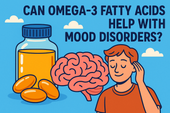
Can Omega-3 Fatty Acids Help with Mood Disorders?
Omega-3 fatty acids do more than support heart health — they can help balance mood, reduce depression, and calm anxiety. Discover how EPA and DHA nourish your brain, fight inflammation, and support emotional well-being from within. 🌊🧠
-

Vitamin D and Mood: The Sunshine Vitamin for Emotional Balance
Could the key to emotional balance be as simple as a little sunlight? Discover how vitamin D — the sunshine vitamin — influences serotonin, reduces inflammation, and helps you feel more positive and resilient year-round. ☀️💛
-

The Role of Magnesium in Reducing Irritability and Low Mood
Feeling on edge or emotionally drained? Magnesium could be the missing link between your body and your mood. Discover how this essential mineral reduces irritability, balances neurotransmitters, and helps your nervous system find calm again. 🌿✨
-
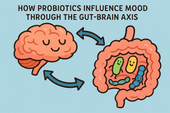
How Probiotics Influence Mood Through the Gut-Brain Axis
Discover how probiotics can do more than support your digestion—they can actually uplift your mood. This article explores the fascinating gut-brain axis and how balancing your gut bacteria through probiotics may help reduce anxiety, improve emotional stability, and support long-term mental well-being. 🌿🧠
-
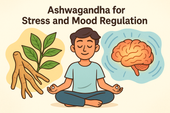
Ashwagandha for Stress and Mood Regulation
Discover how Ashwagandha, the powerful adaptogenic herb 🌿, helps your body manage stress and regulate mood. Learn how it balances cortisol, boosts GABA and serotonin, and supports emotional stability — helping you feel calm, focused, and resilient every day.
-
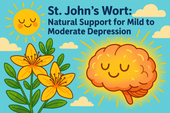
St. John’s Wort: Natural Support for Mild to Moderate Depression
Discover how St. John’s Wort, the “sunshine herb” 🌼, naturally supports mild to moderate depression. Learn how it boosts serotonin, balances mood, and promotes emotional resilience — with research showing its effectiveness compares to antidepressants, but with fewer side effects.
-
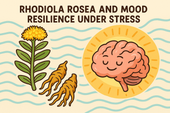
Rhodiola Rosea and Mood Resilience Under Stress
Discover how Rhodiola rosea helps your body adapt to stress 🌿. Learn how this powerful adaptogen balances cortisol, supports serotonin and dopamine, and strengthens emotional resilience — helping you stay calm, focused, and energized under pressure.
-

Chamomile and Lavender: Herbal Calm for Emotional Fluctuations
Discover how chamomile and lavender bring calm to emotional ups and downs 🌿. Learn how these two soothing herbs balance your nervous system, ease anxiety, and support restful sleep — naturally helping you find peace and emotional stability.
-
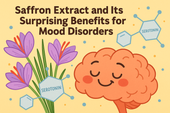
Saffron Extract and Its Surprising Benefits for Mood Disorders
Discover how saffron extract — the golden spice of joy 🌸 — can naturally support mood balance, ease anxiety, and lift mild depression. Learn what science says about its serotonin-boosting power, the ideal dosage, and how this ancient remedy compares to modern antidepressants.
-
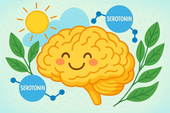
5-HTP and Serotonin: A Natural Path to Lifting Mood
Discover how 5-HTP naturally boosts serotonin 🌞 — the neurotransmitter behind mood, sleep, and emotional balance. Learn how this plant-derived compound supports happiness, reduces anxiety, and improves rest by helping your brain create more serotonin the gentle, natural way.
-
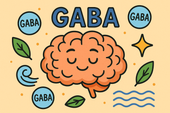
GABA Supplements for Reducing Anxiety and Mood Swings
Discover how GABA supplements can help reduce anxiety and balance mood naturally 🌿. Learn how this calming neurotransmitter works to quiet the mind, ease stress, and improve sleep — plus which nutrients and habits can boost your body’s own GABA production for long-term emotional stability.
-
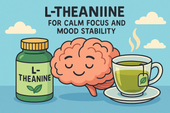
L-Theanine for Calm Focus and Mood Stability
Discover how L-theanine, the calming compound found in green tea 🍵, promotes focus, relaxation, and mood stability. Learn the science behind how it balances neurotransmitters, reduces stress hormones, and enhances clarity — helping you stay centered, calm, and productive without sedation.
-
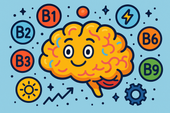
B Vitamins and Brain Chemistry: Supporting Energy and Emotional Balance
Discover how B vitamins power your brain chemistry ⚡. Learn how B6, B9, and B12 support serotonin, dopamine, and energy production — helping boost focus, mood, and emotional balance. From diet to supplements, explore how this vital nutrient group keeps your mind resilient and your energy steady.
-

N-Acetyl Cysteine (NAC) and Mood Disorders: What the Research Says
Learn how N-Acetyl Cysteine (NAC) supports brain health and mood balance 🧠. Discover how this antioxidant helps reduce oxidative stress, regulate glutamate, and improve emotional stability in depression, bipolar disorder, and anxiety — backed by cutting-edge psychiatric research.
-

Supplements for Bipolar Disorder: What May Support Stability
Discover the best supplements for bipolar disorder 🌿 that may support emotional stability and brain health. Learn how nutrients like omega-3s, magnesium, vitamin D, and NAC can help reduce inflammation, balance neurotransmitters, and complement traditional treatment safely.

















































